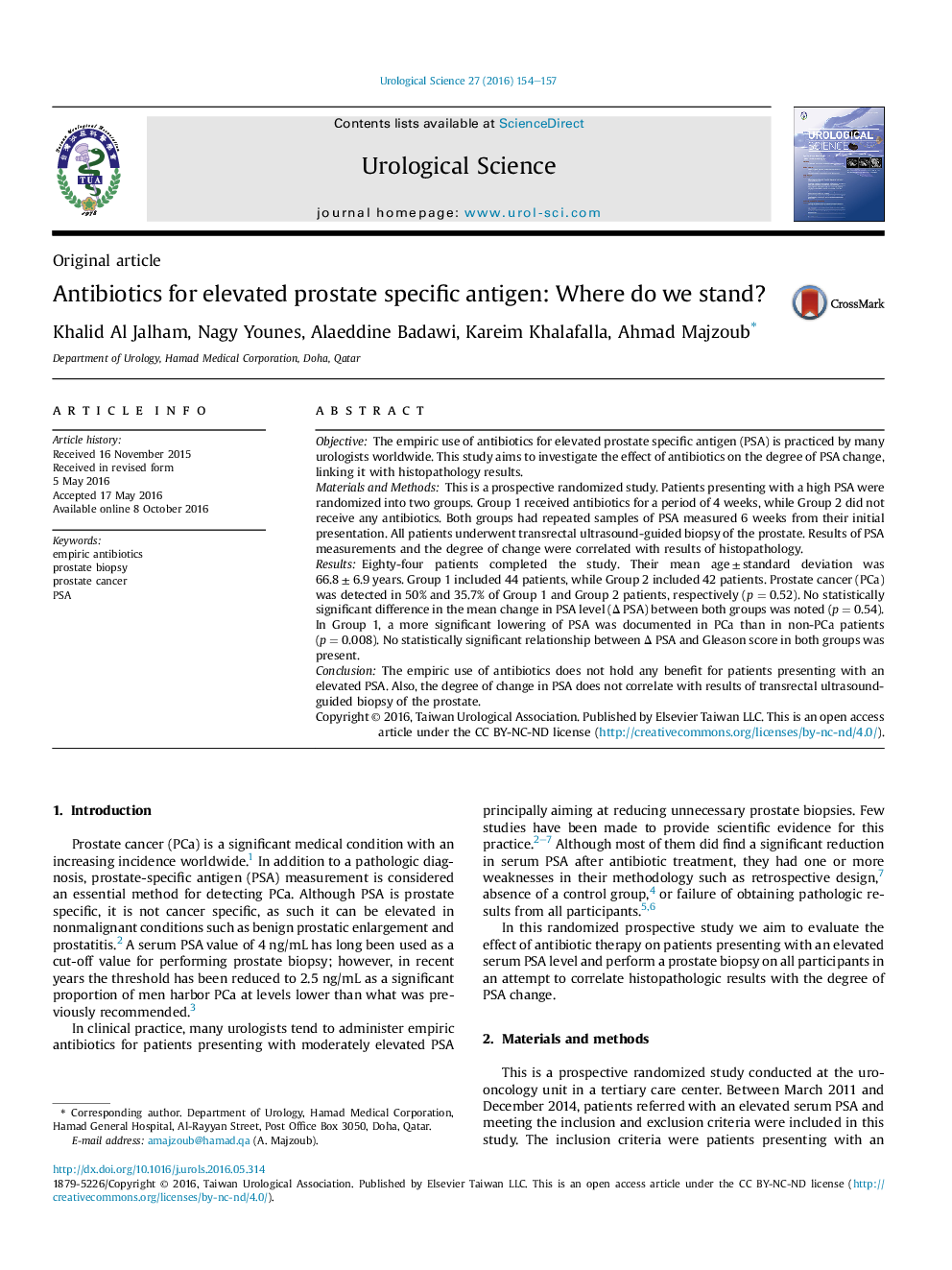| Article ID | Journal | Published Year | Pages | File Type |
|---|---|---|---|---|
| 5730846 | Urological Science | 2016 | 4 Pages |
ObjectiveThe empiric use of antibiotics for elevated prostate specific antigen (PSA) is practiced by many urologists worldwide. This study aims to investigate the effect of antibiotics on the degree of PSA change, linking it with histopathology results.Materials and MethodsThis is a prospective randomized study. Patients presenting with a high PSA were randomized into two groups. Group 1 received antibiotics for a period of 4 weeks, while Group 2 did not receive any antibiotics. Both groups had repeated samples of PSA measured 6 weeks from their initial presentation. All patients underwent transrectal ultrasound-guided biopsy of the prostate. Results of PSA measurements and the degree of change were correlated with results of histopathology.ResultsEighty-four patients completed the study. Their mean age ± standard deviation was 66.8 ± 6.9 years. Group 1 included 44 patients, while Group 2 included 42 patients. Prostate cancer (PCa) was detected in 50% and 35.7% of Group 1 and Group 2 patients, respectively (p = 0.52). No statistically significant difference in the mean change in PSA level (ΠPSA) between both groups was noted (p = 0.54). In Group 1, a more significant lowering of PSA was documented in PCa than in non-PCa patients (p = 0.008). No statistically significant relationship between ΠPSA and Gleason score in both groups was present.ConclusionThe empiric use of antibiotics does not hold any benefit for patients presenting with an elevated PSA. Also, the degree of change in PSA does not correlate with results of transrectal ultrasound-guided biopsy of the prostate.
